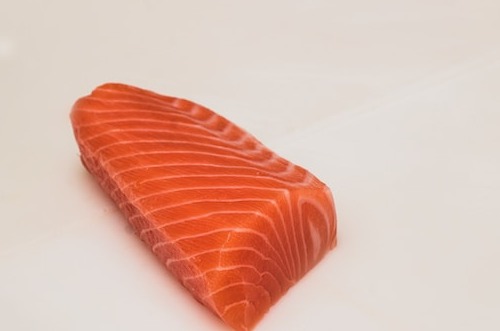W26: Salmon Update

In W26 in the salmon landscape, in mid-Jun-23, Norwegian Atlantic salmon prices dropped by 7.26% compared to the beginning of Jun-23, reaching an average of USD 10.19 (NOK 108.9). This decline could help the shrimp industry recover from Q3-23 due to increased demand and supply shortages. The Nasdaq Composite listed salmon prices at USD 9.4 (NOK 100.9) for delivery in Jul-23. In addition, Norwegian fresh salmon prices plummeted by 8.59% WoW to USD 8.07/kg in W25, dropping by over 20% in the past two weeks. Forecasts suggest the downward trend will continue until September, with projections of a dip below USD 7.06/kg. Meanwhile, Norwegian salmon sales to China nearly doubled in 2023, reaching USD 224.6 million (NOK 2.4 billion). The Seafood Council reported that in the first five months of 2023, 17,697 tons of salmon were exported, bringing the total value to USD 230 million (NOK 2.46 billion), twice the previous year's total.
Russian-Latvian officials found violations in importing Chilean salmon into Eurasian Economic Union (EAEU) customs territory, despite no prior notification from the State Veterinary Service of Latvia. Importing Chilean salmon is prohibited, and an act on cargo return is issued. Russia's salmon market faces a price drop due to Chilean imports, wild harvests, and fading consumer demand, causing a 5 to 7% decrease in per capita seafood consumption in the coming years. During W26, Chilean Atlantic salmon fillets in the United States (US) market remained stable due to limited supply due to Chilean holidays and severe weather conditions. FOB MIA prices for 2/3 pound fillets and 3/4 pound fillets remained at USD 4.95-5.10/lb. The US preserved salmon exports decreased by 18% in Apr-23, reaching 790 tons. The most significant growth was in Aug-22, with exports increasing by 87% monthly. Canada is the leading destination for preserved salmon exports from the US, making up 48% of the total exports.
Salmon farming in Tasmania drives the state's economy, generating USD 770 million in 2022 and supporting 5,100 jobs, but opposition politicians criticize the report's exaggerated figures. A study by Fisheries New Zealand, Aquaculture New Zealand, and the New Zealand Salmon Farmers Association found that domestically-farmed king salmon has a smaller carbon footprint than beef, lamb, and cheese. The industry is exploring modified atmosphere packaging for improved transportation.


